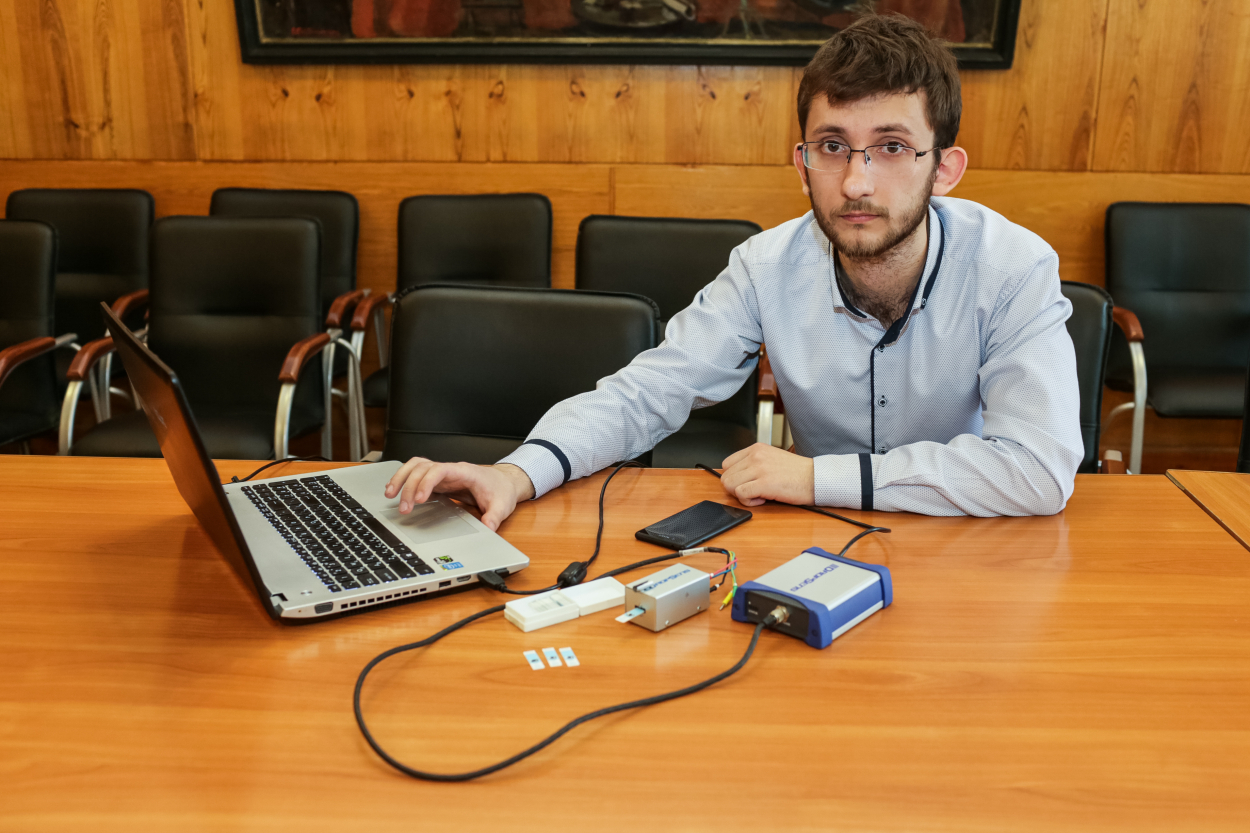“E-tongue” for food and wastewater: SPbU students

The team “E-tongue” who takes part in the “SPbU Start-Up — 2018” has come with an idea as to how analyse the composition of liquids outside the lab. The neural-network-based invention is designed for environmental monitoring and food quality assessment.
“Today if the suppliers want to know the composition of, say, the harvested sunflower seeds, they should contact the chemical laboratories, — said Valentin Ershov who is the leader of the team and a student in Chemistry, Physics, and Mechanics of Materials. — The return of the products of improper quality is highly impossible. We have developed a device to carry out express-tests even in the field”.
The device was presented by the team in the competition in 2017 and comprises three parts. Its main element is an electrode that is covered by a special composite material that is sensitive to the ions of metals and carcinogens. The second element is a potentiostat-galvanostat that induces current, voltage, and resistance. The third element is a neural network that knows what electrical and chemical response each product produces. All these make the device a perfect solution for an outside-lab testing.
“You can benefit from our product in a number of ways, — said Valentin Ershov. — First, unlike its analogues, it is value for money. Second, it is mobile. Third, it is user friendly and intuitive. Besides, it can simultaneously analyse several ingredients in one sample”.
It is not the first time when Valentin Ershov takes part in the competition. His previous invention was designed to accelerate the blood test. They successfully reached the final. Yet their opponents took the lead.
“We developed a device to simultaneously analyse 20-30 components in the blood which are now analysed separately, — said Valentin Ershov. — We consulted the leading laboratories and realized that such device would be very much needed. Yet we failed. After the final, the jury recommended to focus on how we can use the device in agriculture and ecology rather than in medicine as the barriers to entry in healthcare market are very high. Now we have more chances to succeed”.
The team has a pre-production model that is intended to trace metals in wastewater. They are planning to open a small innovation company, go beyond agriculture and ecology and enter the healthcare market where the invention would be more useful, as they say.
Apart from Valentin Ershov, the team includes Vladislav Gurenko, a graduate student in Chemistry, Stepan Danilov, a student in Chemistry, Physics, and Mechanics of Materials, Aleksandr Sukhachev, a graduate student in Mathematical Support and Information System Management, and Vladimir Statsenko, a graduate student in Risk Management and Insurance. The scientific supervisor is Doctor of Chemistry and SPbU’s Associate Professor Oleg Levin.

